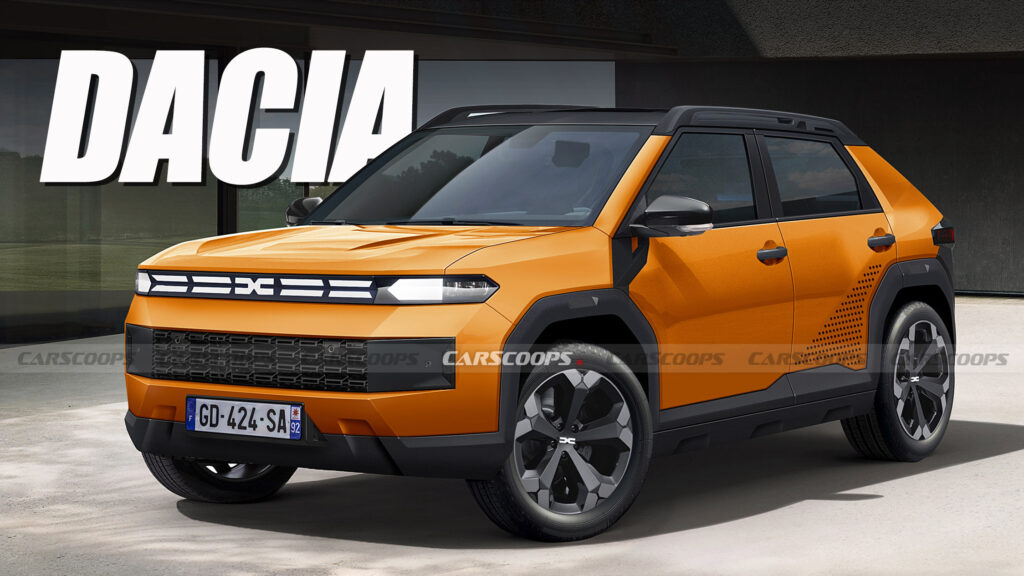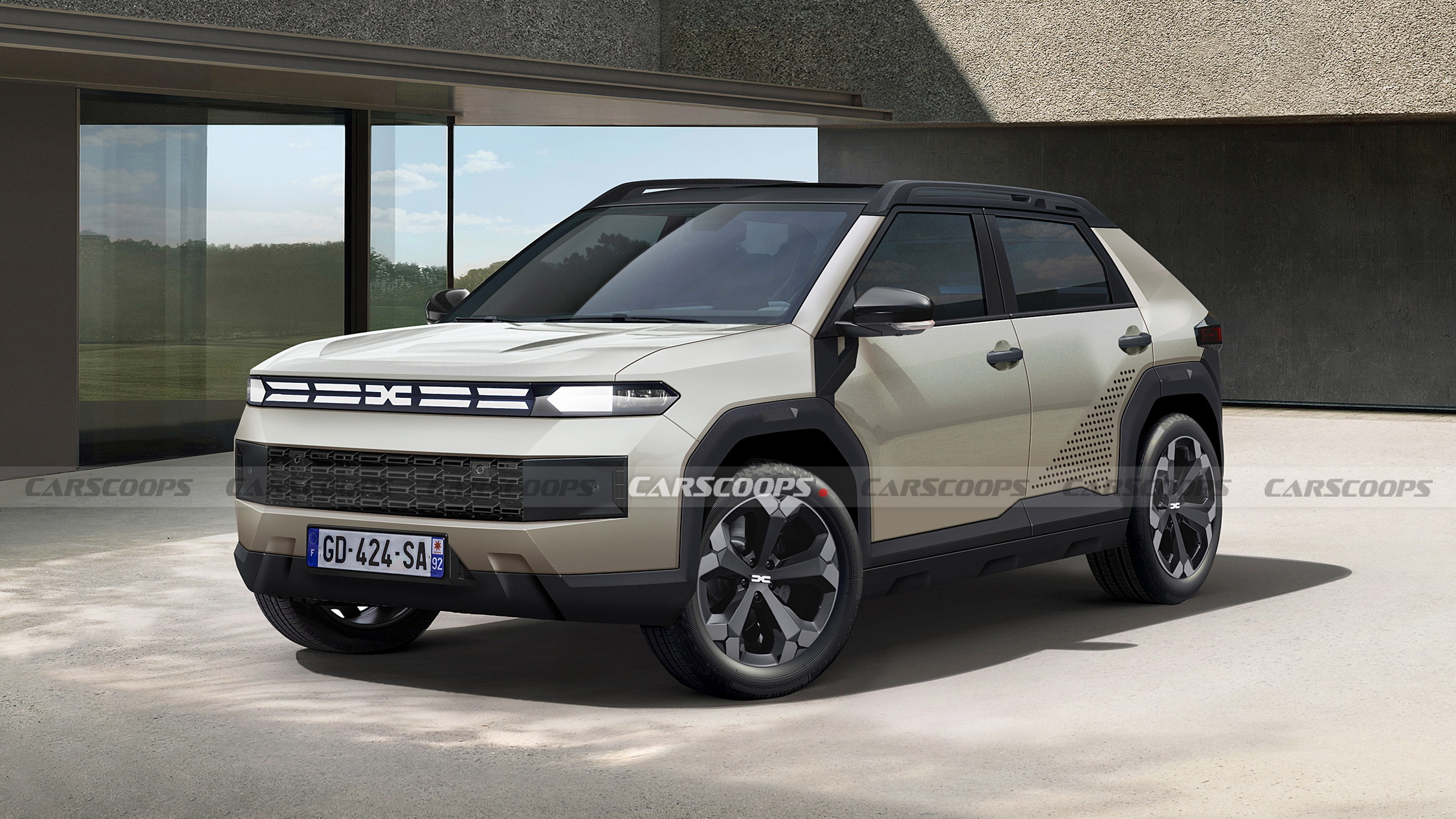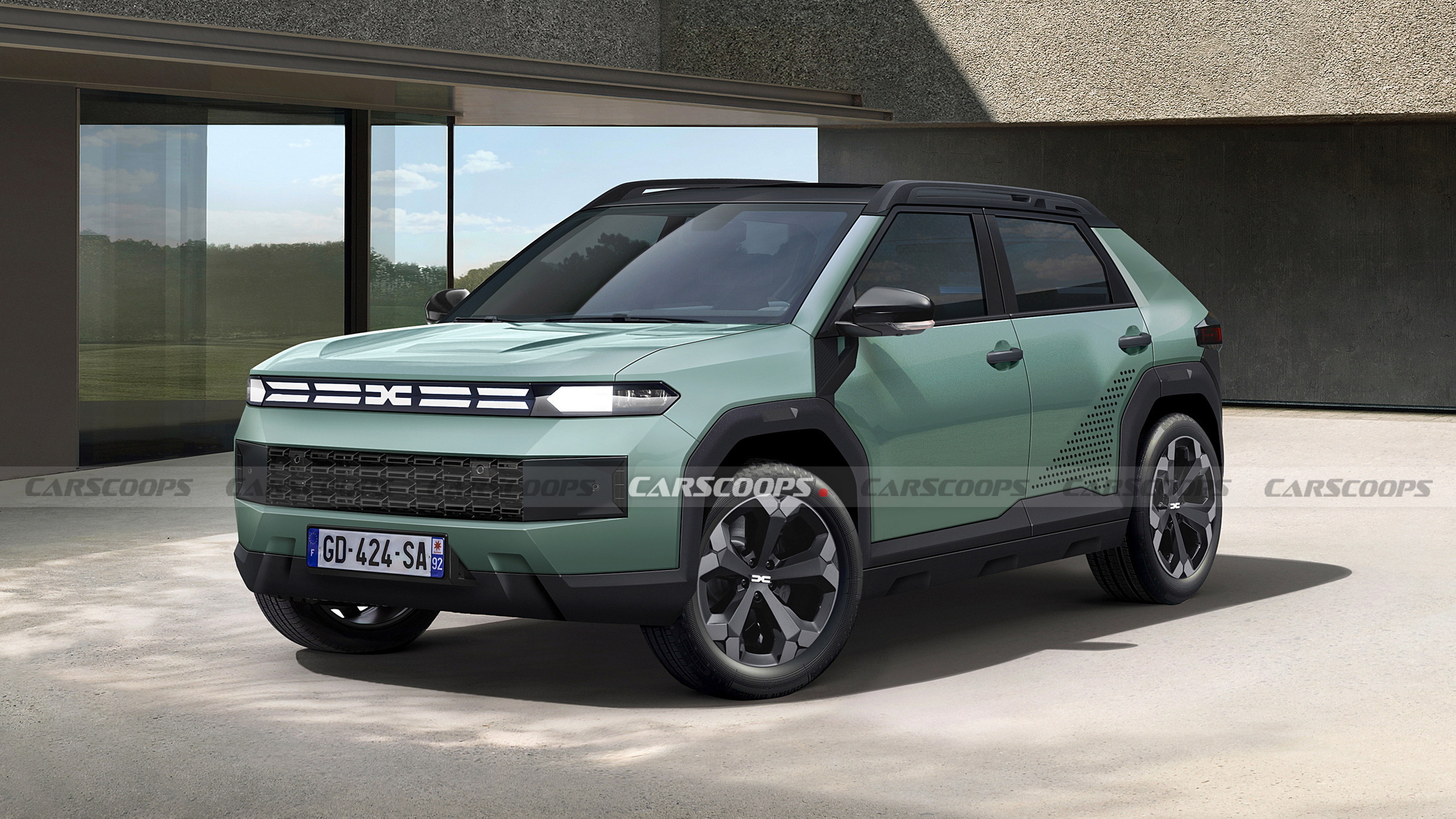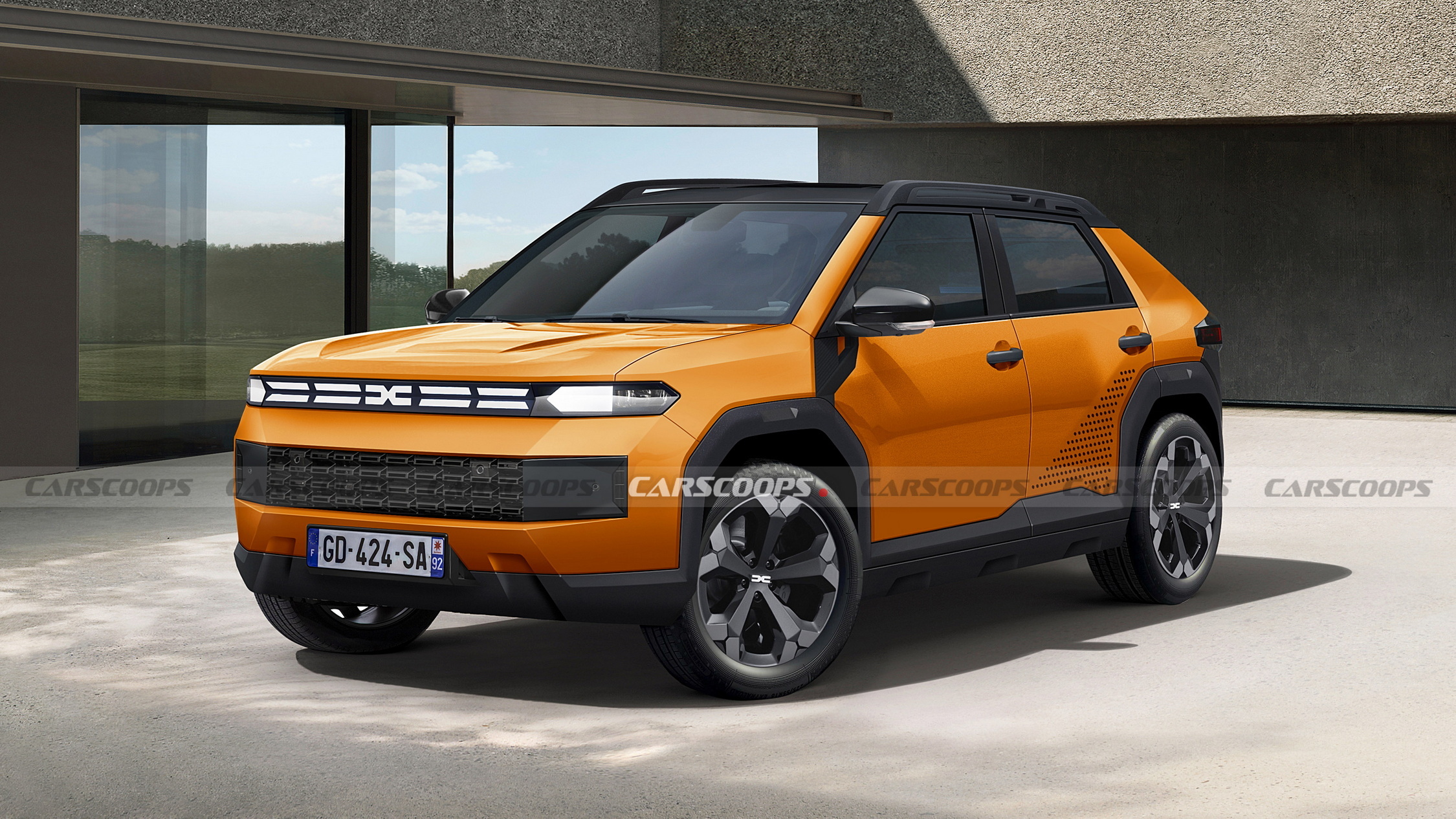- The Dacia Sandero Stepway’s successor will be a true SUV, rather than a high-riding hatch.
- The new model will enter the B-SUV segment in 2027, positioned below the slightly larger Duster.
- Expect ICE, mild-hybrid, and full-hybrid powertrains, with an EV also being a possibility.
Dacia is working on a new entry-level SUV, which is set to replace the Sandero Stepway crossover supermini, capitalizing on the success of the Duster. The yet-unnamed model is expected to debut in 2027, positioned in the heart of Europe’s favorite B-SUV segment.
Slated for a 2027 debut, it’ll undoubtedly aim to capitalize on the Duster’s success, hoping to carve out a niche in the heart of Europe’s, well, least expensive B-SUV segment.
More: Dacia Updates Sandero, Logan, And Jogger With More Tech To Meet EU Rules
The Dacia Sandero Stepway has been a sales hit for the Romanian automaker, making up two-thirds of all Sandero sales. However, despite its crossover-inspired looks, it remains a lifted hatchback that struggles to compete directly with true subcompact SUVs from other brands. This will all change with its successor, which will embrace a more genuine SUV stance while maintaining its compact size.
The third generation of the Dacia Duster is also classified as a B-SUV, but the fact that it has grown significantly compared to the original model creates room for smaller sibling. This niche could be filled by a “baby SUV” no more than 4,150 mm (163.4 inches) long, compared to the Duster’s 4,343 mm (171 inches) body. It’s worth noting that Dacia has already confirmed an even larger SUV, the Bigster, arriving in 2025.
A Fiat Grande Panda rival
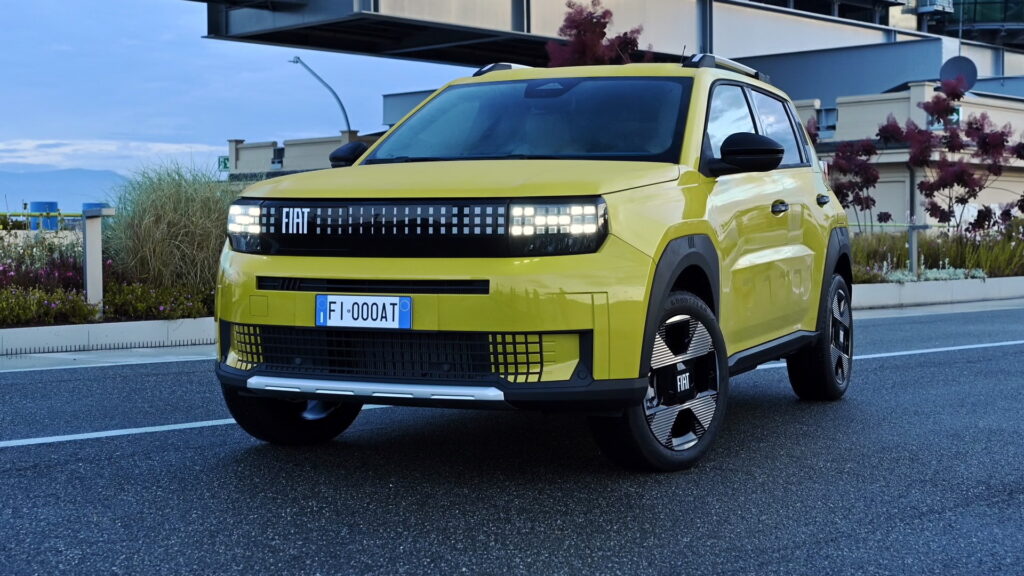
To prevent the Sandero Stepway from cannibalizing its hatchback sibling’s sales, Dacia plans to further differentiate the successor. This strategic move is crucial, especially since rivals like the Citroen C3 and Fiat Grande Panda already integrate crossover aesthetics into their standard supermini offerings.
However, expanding their SUV portfolio to three models offers Dacia, the budget-friendly brand of the Renault Group, a golden opportunity to not only increase market share but also attract adventure-oriented buyers.
Concept-inspired styling
As depicted in our speculative renderings, Dacia’s entry-level SUV will borrow design elements from the Manifesto concept and the Sandrider, its 2025 Dakar Rally contender. However, the production model is expected to trade the extreme proportions of the two off-roaders for a more conventional B-SUV stance, with rugged details.
Benefiting from a taller body, Dacia’s Duster sibling promises more interior space than the Sandero Stepway. This practical perk won’t compromise its adventurous spirit, as the new model will retain generous ground clearance and protective plastic cladding around the bodywork.
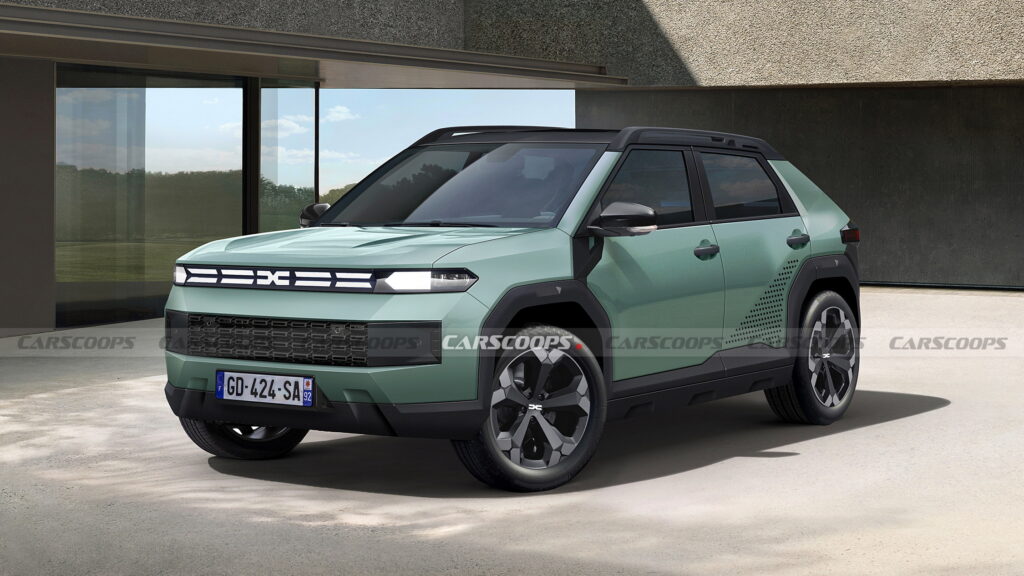
Our render of Dacia’s upcoming entry-level SUV (above) compared to the Dacia Duster (below)
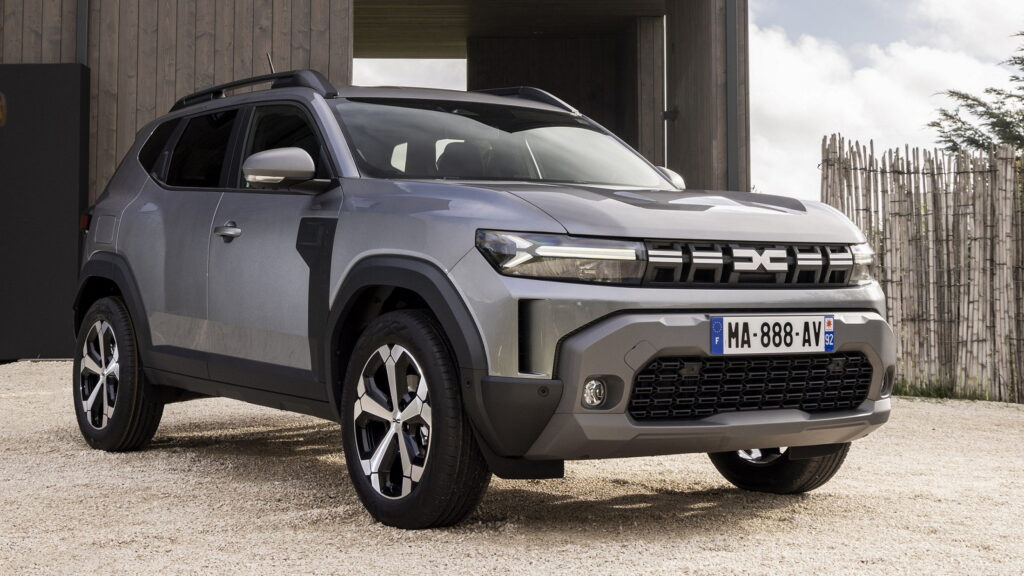
Following suit, the interior prioritizes practicality with Dacia’s innovative YouClip mounting system, allowing for easy customization. Expect Dacia’s signature cost-conscious engineering to shine through as well, with clever use of shared components across the Dacia lineup.
Shared Underpinnings, Electrified Powertrains
The new model will likely ride on Renault Group’s CMF-B architecture that already underpins the Sandero, Sandero Stepway, Logan, Jogger, and Duster. After all, the same modular platform will be utilized by the Bigster SUV in 2025, and the upcoming crossover wagon and fastback-style sedan in 2026.
This shared platform strategy, known as “economy of scale,” allows Dacia to maintain its value-for-money character across all segments.
More: 2024 Dacia Spring EV Gets Duster-Inspired Looks And An Overhauled Interior
In terms of powertrains, our sources suggest that the yet-unnamed Dacia will be available in ICE, LPG, mild-hybrid, and full-hybrid forms, taking full advantage of Renault Group’s parts bin. These newer-generation engines could bring significant improvements in efficiency and performance to the Dacia lineup.
A fully electric version remains a possibility, mirroring the upcoming next-generation Sandero supermini’s zero-emission option arriving in 2028. The question of all-wheel drive (AWD) lingers, though. Will Dacia join the few budget brands offering AWD, or will this SUV follow the front-wheel drive (FWD) trend of its competitors?
Dacia’s budget-friendly answer to the Jeep Avenger could hit the road by 2027. Development testing might start as early as next year, so keep an eye out for camouflaged prototypes. Our spy photographers will be on the case, and we’ll update this story with any intel we uncover.
Note: These independent renderings are off-the-record and unrelated to Dacia.




